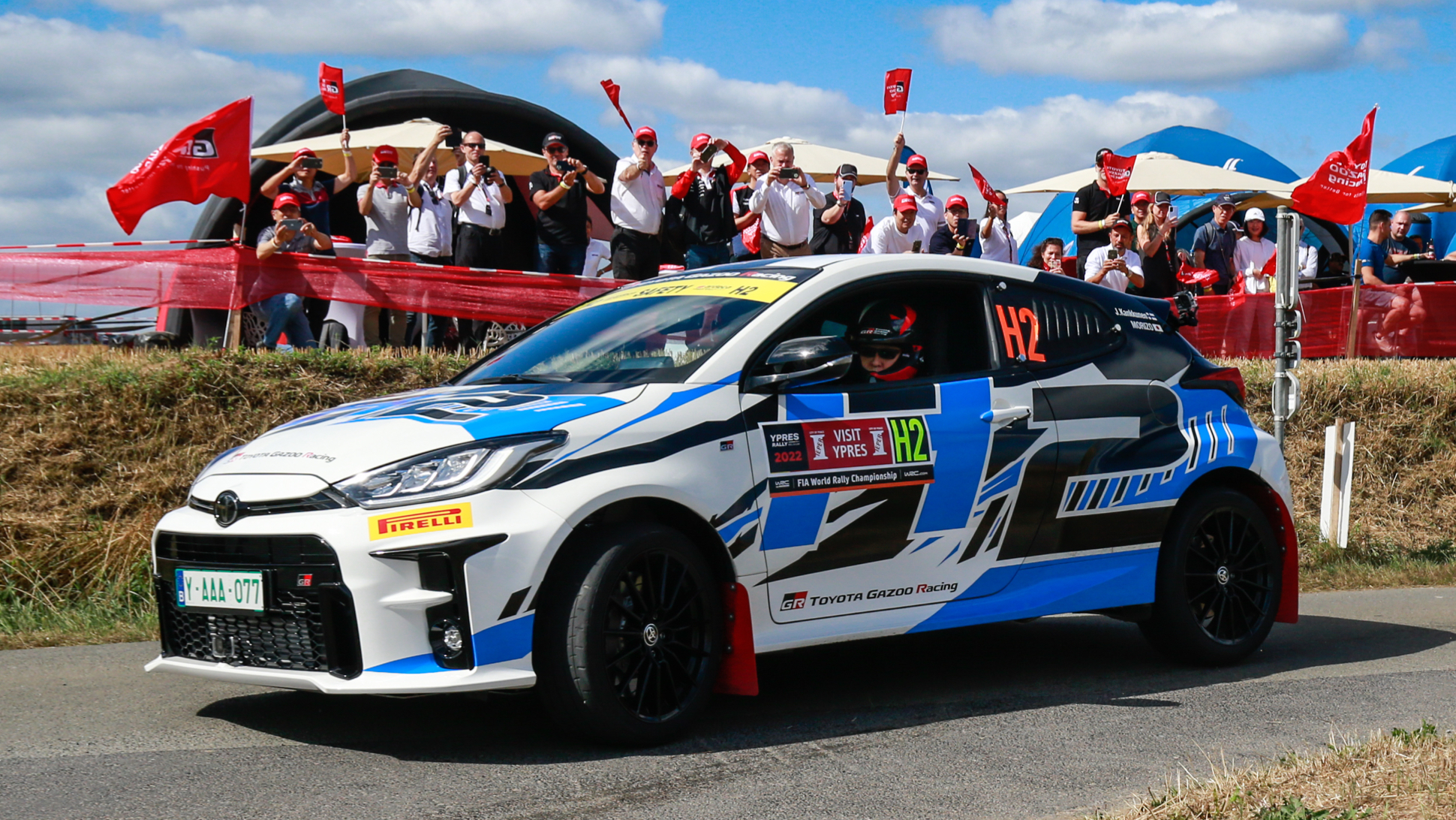

Most of the momentum for future cars may be behind electric vehicles nowadays, but Toyota’s still holding out hope that hydrogen could give the internal combustion engine a new, clean lease on life—and that’s what its latest toy, the hydrogen-powered GR Yaris H2, is all about. CEO Akio “Morizo” Toyoda himself and four-time World Rally Championship winner Juha Kankkunen took it to Ypres Rally Belgium last weekend to show it off, running it as a safety car ahead of the main rally competitors.
Behold! It rips.

This is the first time Toyota has run a hydrogen development vehicle outside of Japan, and Ypres Rally Belgium’s narrow, windy WRC stages are the perfect place to do it. Part of that is because it’s a GR Yaris—the basis for Toyota’s factory WRC ride—and Morizo is a certified hoon, but perhaps an even bigger part of that is because there’s actually a nearby hydrogen station. Morizo himself acknowledged to DirtFish that having the infrastructure for hydrogen vehicles is key to them actually standing a chance, but if you can actually fuel one up, it sounds like there are some interesting advantages to hooning one.
The main one that most of us know by now is that hydrogen power emits virtually nothing but water vapor from the tailpipe. The GR Yaris H2 has a modified version of its internal combustion engine that runs on hydrogen instead of fossil fuels. There’s a large, cylindrical hydrogen fuel tank in the back that holds hydrogen gas, and the injectors spit that hydrogen gas into the combustion chambers instead of atomized fuel. The fuel cell itself was carried over from the Toyota Mirai hydrogen-electric road car.

You don’t lose the feedback from the engine sound, or that more traditional experience of whipping around a manual-transmission hot hatch. That’s a big part of why Toyoda believes hydrogen could be an ideal fuel for motorsports in the future—you can still run cars where being in the right gear coming out of a turn can make or break a good stage time, all while ditching the dirty emissions of fossil fuel.
However, the part that really got my attention was the mild bump in power. “I’m surprised how well it goes,” Kankkunen told DirtFish. “The power is a little bit more than the standard one, plus the torque! There’s a lot more torque because that [hydrogen] fuel burns much better than the normal [gasoline] fuel you can buy from the station.”
Kankkunen estimated there was about 10 percent more power and torque over the standard car, which sounds like an absolute delight considering that the regular GR Yaris already makes 268 hp and 278 pound-feet of torque, all while weighing only 2,822 pounds. The development engineer who spoke with DirtFish refused to confirm Kankkunen’s guess, claiming that power figures were still secret, but it’s safe to assume Kankkunen is familiar enough with both the stock and hydrogen-powered cars to comment on differences.
It’s hard to say if hydrogen-powered rally is as feasible as Toyota hopes. It’s difficult enough for manufacturers to justify developing and supporting motorsport programs, and even harder so if a racing series’ cars bear little resemblance or relation to the road cars a company builds. Toyota is hydrogen’s most vocal proponent, yet few others seem interested in supporting the fuel as a greener way forward. Either way, I’ve got to admit that the hydrogen-powered GR Yaris H2 sure looks like fun.












Got a tip? Email the author: stef@thedrive.com